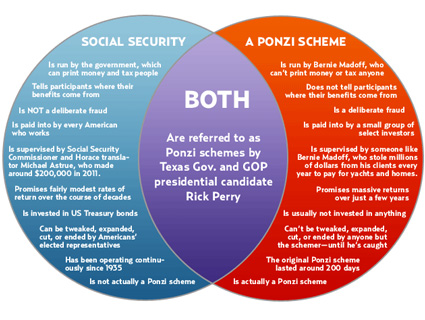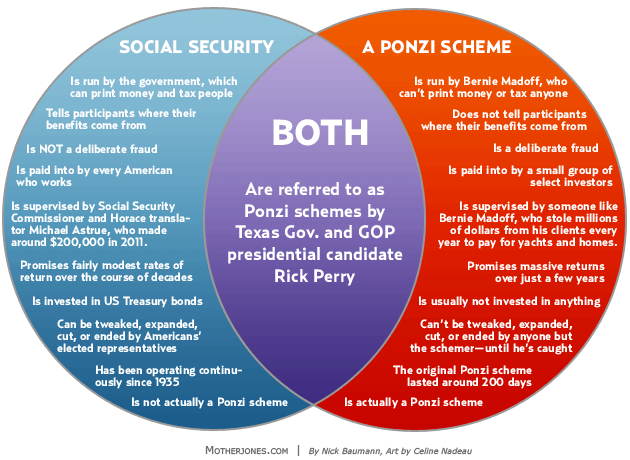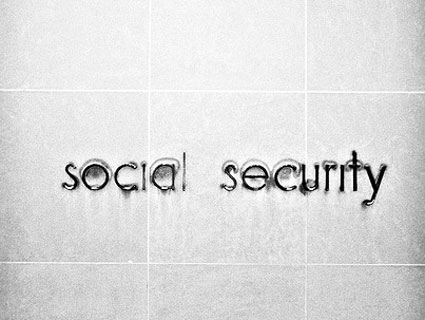
On Saturday, Texas Gov. Rick Perry told a group of voters that Social Security is a “Ponzi scheme” and a “monstrous lie” to younger Americans. It’s not the first time the GOP presidential candidate has made such claims. The Texas governor also described Social Security as a Ponzi scheme in his 2010 book, “Fed Up!,” and has argued the program is unconstitutional and could be handed over to the states.
When politicians make clearly false claims, reporters have an obligation to explain to readers why those claims are false—or at least quote someone who can. I would suggest political scientist Jonathan Bernstein:
Very simple: anyone who says that Social Security is a Ponzi scheme either misunderstands Social Security, misunderstands Ponzi schemes, is deliberately lying, or some combination of those…After all, a Ponzi scheme is a deliberate fraud. Saying that Social Security is financed like a Ponzi scheme is factually wrong, but saying that Social Security is a Ponzi scheme or is like a Ponzi scheme is basically a false accusation of fraud against the US government and the politicians who have supported Social Security over the years.
Andrew Sullivan’s readers also have a number of good reasons why Social Security is not a Ponzi scheme. The Social Security Administration also has a good web page explaining why Social Security is not a Ponzi scheme. But I find that charts often make understanding things easier, so here’s a Venn diagram I made that explains some of the differences and similarities between Social Security and a Ponzi scheme:












